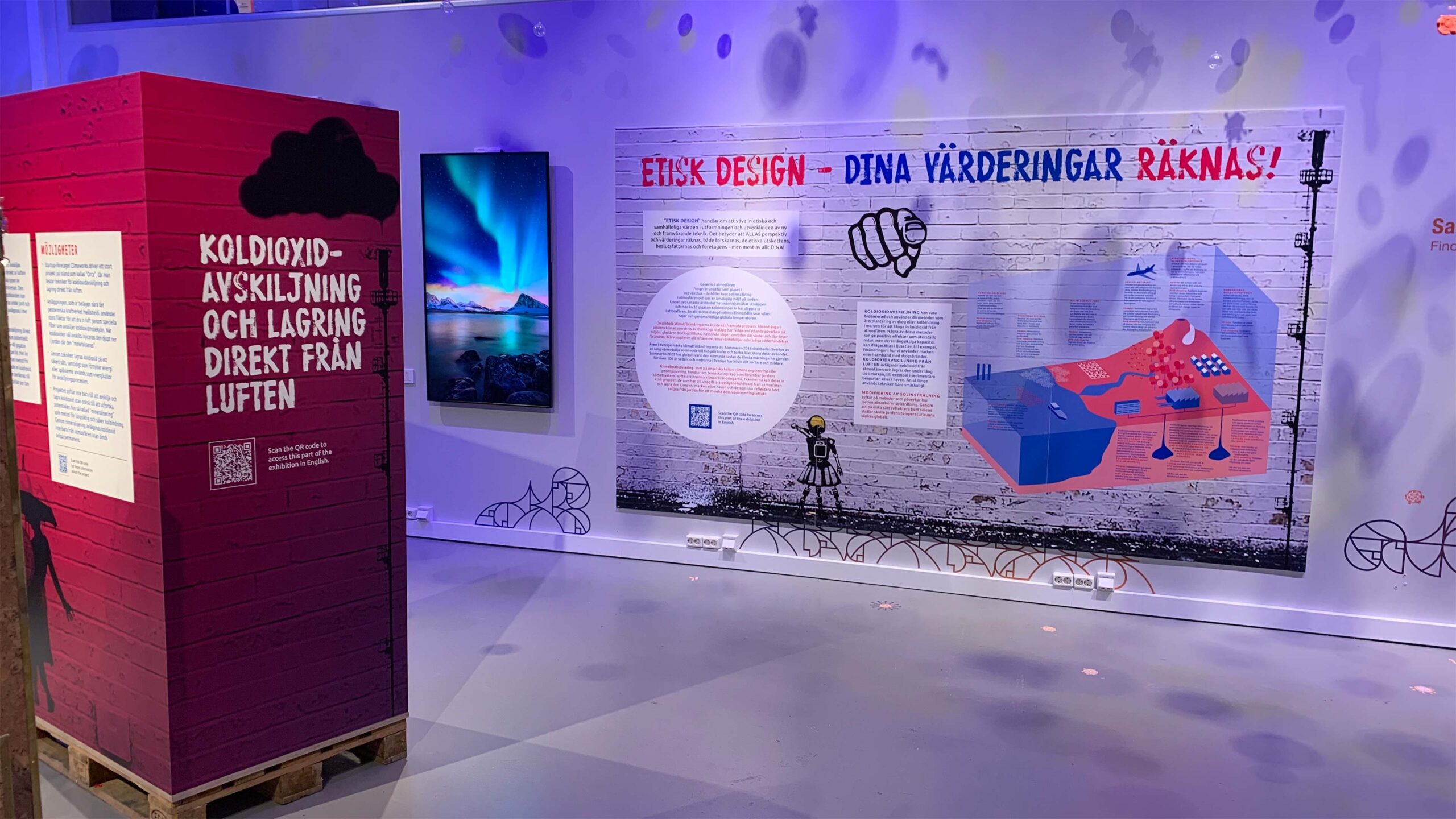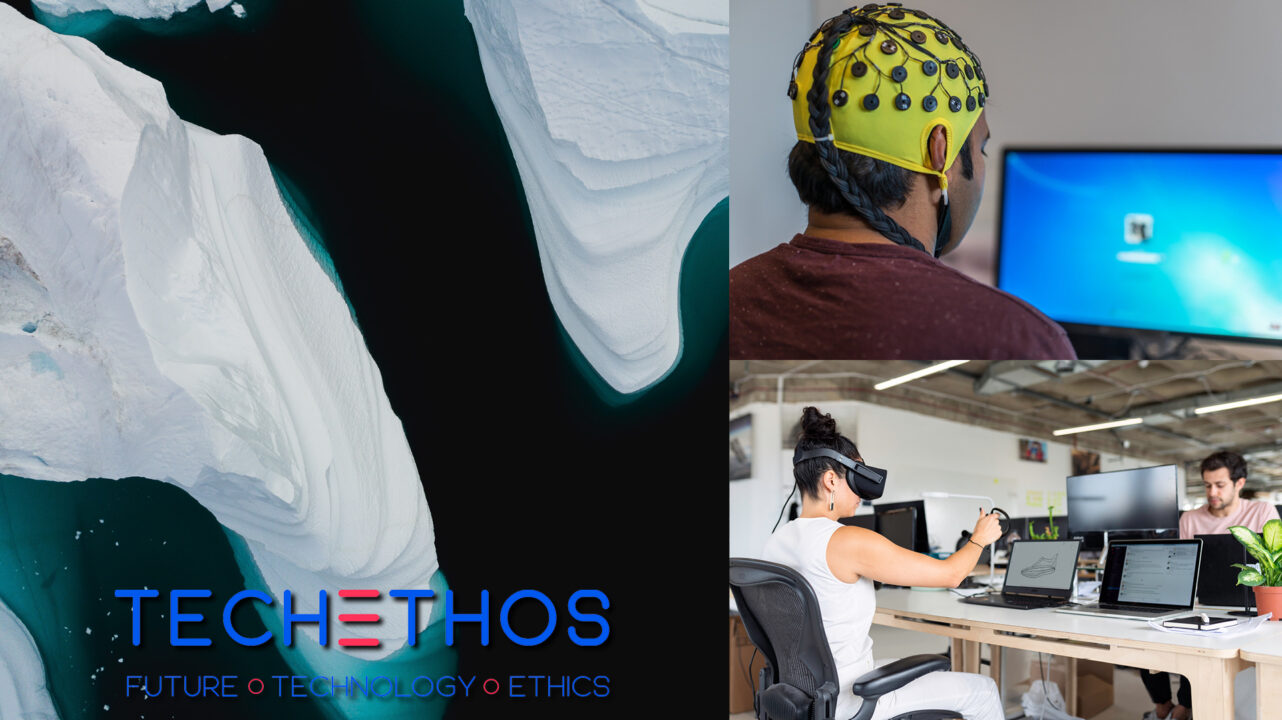New and emerging technologies bring with them new ethical challenges and societal consequences. In the EU project TechEthos, VA (Public & Science) was involved in gathering societal perspectives through public engagement events, in-depth dialogues, exhibitions and analyses. The project ran from 2021 – 2023.
TechEthos wants to shine a spotlight on ethics within the sphere of technology innovation and, in particular, new, emerging technologies. Emerging technologies are technologies that are only now taking shape, which will be available within the next five to ten years, and are expected to have a large impact on society.
Led by the Austrian Institute of Technology, the project involves organisations from twelve countries, consisting of ten partners and six linked third parties, including VA (Public & Science).
After conducting a horizon scan of emerging technologies with high socio-economic impact, three technologies was selected for further analysis to identify the ethical challenges and societal consequences that are likely to come along with them. Guidance will be subsequently developed by the project to support the development and deployment of these technologies at EU and international levels, for example, in the form of an ethics framework and operational guidelines.
The three technical areas selected:
- Climate Engineering – Climate Engineering represents a family of technologies – including primarily techniques for Carbon Dioxide Removal and for Solar Radiation Management – that could mitigate human-induced climate change. Some of the key ethical concerns surrounding these technologies include irreversibility, social inequality and transparency (for example, its imposition on some communities or countries that may not choose them) and responsibility towards future generations.
- Digital Extended Reality – Digital Extended Reality technologies combine advanced computing systems (hardware and software) that can change how people connect with each other and their surroundings and influence or manipulate human actions through interactions with virtual environments.
Key ethical concerns surround cybersecurity and how these technologies may impact human behavioural and social dynamics. For example, technology mimicking human responses may give rise to responses as though it were actually human, while developments in Extended Reality may lead to undue influence from ‘nudging’ techniques. - Neurotechnologies – Neurotechnologies directly involve the human brain in monitoring, assessing, emulating, and manipulating its function. One such example are brain computer interfaces that can support more intuitive control of prosthetic devices and relay sensory information back to users. Some key ethical concerns include how we can ensure humans retain their free will and autonomy, and privacy issues regarding sensitive data.
Public involvement is key in the project. VA is working together with a number of other science communication organisations, all Ecsite members, to capture the public’s awareness and attitudes towards the selected emerging technologies. Scenarios will be developed for use at science cafes and stakeholder workshops to be run in different EU countries, including Sweden, during 2022 and 2023. VA will also be involved in a media analysis and dissemination actions.
TechEthos partner organisations:
- Austrian Institute of Technology (Austria) – Coordinator
- Associazione Italiana per la Ricerca Industriale – AIRI (Italy)
- All European Academies (Germany)
- CEA (Atomic & Alternative Energies Commission) (France)
- De Montfort University (UK)
- Ecsite, the European Network for Science Centres & Museums (Belgium)
- EUERC Office GUG, European Network of Research Ethics Committees Office (Germany)
- Trilateral Research Ltd (UK)
- Technische Universiteit Delft (The Netherlands)
- University of Twente (The Netherlands)
Linked Third Parties
- ScienceCentre-Netzwerk (Austria)
- iQLANDIA (Czech Republic)
- ASUR (Asociația Secular-Umanistă din România) (Romania)
- Centre for the Promotion of Science (Serbia)
- Parque de las Ciencias (Spain)
- VA (Public & Science) (Sweden)
Follow TechEthos
Twitter and LinkedIn: @TechEthosEU
Read more at the project webpage: TechEthos.eu
TechEthos is funded by Horizon 2020, the EU framework programme for research and innovation. The project runs from January 2021 until December 2023.

Read the latest from the project
Ny utställning utforskar risker och möjligheter med koldioxidlagring

Klimatmanipulering förväntas spela en central roll för att hjälpa oss att nå klimatmålen. Men kan teknikerna implementeras på sätt som är etiskt, socialt och ekonomiskt hållbara? I EU-projektet TechEthos har… Läs mer
New virtual exhibition on new and emerging technologies

Emerging technologies such as climate engineering and AI create new opportunities to tackle the challenges we face, but they also bring potential societal and ethical consequences. In the EU project… Läs mer
Virtuell utställning om nya och framväxande tekniker

Framväxande teknik som klimatmanipulering och AI ger oss nya möjligheter att möta de utmaningar som vi står inför, men utvecklingen medför även samhälleliga och etiska utmaningar. I EU-projektet TechEthos har… Läs mer

